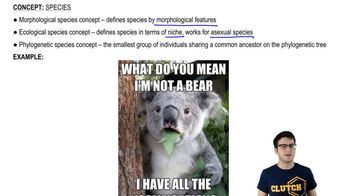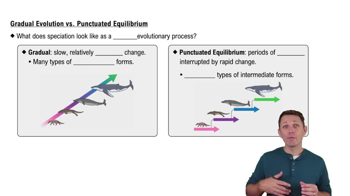When the ranges of two different species meet, a stable 'hybrid zone' occupied by hybrid individuals may form. How is this possible?
a. Two diverged populations are capable of mating and producing viable and fertile offspring.
b. Hybrid individuals are always allopolyploid and are thus unable to mate with either of the original species.
c. Hybrid individuals may have reduced fitness and thus be strongly selected against.
d. One species has a selective advantage, so as hybridization continues, the other species will go extinct.




